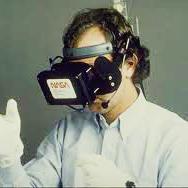This paper makes the case that a powerful new discipline, which we term perception engineering, is steadily emerging. It follows from a progression of ideas that involve creating illusions, from historical paintings and film, to video games and virtual reality in modern times. Rather than creating physical artifacts such as bridges, airplanes, or computers, perception engineers create illusory perceptual experiences. The scope is defined over any agent that interacts with the physical world, including both biological organisms (humans, animals) and engineered systems (robots, autonomous systems). The key idea is that an agent, called a producer, alters the environment with the intent to alter the perceptual experience of another agent, called a receiver. Most importantly, the paper introduces a precise mathematical formulation of this process, based on the von Neumann-Morgenstern notion of information, to help scope and define the discipline. It is then applied to the cases of engineered and biological agents with discussion of its implications on existing fields such as virtual reality, robotics, and even social media. Finally, open challenges and opportunities for involvement are identified.
翻译:暂无翻译




